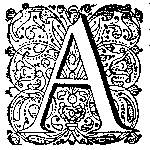Invisible Loot
Maritime Warfare and Circulating Objects in Hugo Grotius’s De Jure Praedae
DOI:
https://doi.org/10.51750/emlc19186Keywords:
Hugo Grotius, De Jure Praedae Commentarius, material culture, booty, VOC, imperialismAbstract
This article offers a new reading of Hugo Grotius’s early treatise De Jure Praedae Commentarius (Commentary on the Law of Prize and Booty, 1604-1606), approaching this text from the perspective of material culture. Commissioned by the Dutch East India Company (VOC) after Dutch seafarers confiscated the Portuguese carrack Santa Catarina and its cargo, Grotius’s text, this article proposes, deliberately obscures the ways the Dutch valued objects as trophies, loot, and spoils. Analysis of De Jure Praedae reveals that Grotius argues against the display of material wealth that the Dutch had acquired as loot, negatively associating it with the Portuguese and Spanish empires and instead propagating the invisible dispersal of the booty. In this way, De Jure Praedae, an early work by a major apologist of the VOC, rationalised the continuous circulation of objects in the service of Dutch empire-building. The article’s broader project is to speak to scholars of the global circulation of material culture and of empire alike to contribute to a history of how looted objects were conceived as key instruments in Dutch imperial expansion.
Downloads

Published
Issue
Section
License
Copyright (c) 2025 Elsje van Kessel

This work is licensed under a Creative Commons Attribution-NonCommercial 4.0 International License.
How to Cite
Funding data
-
Leverhulme Trust
Grant numbers RF-2017-348 -
Netherlands Institute for Advanced Study in the Humanities and Social Sciences





